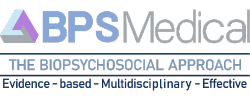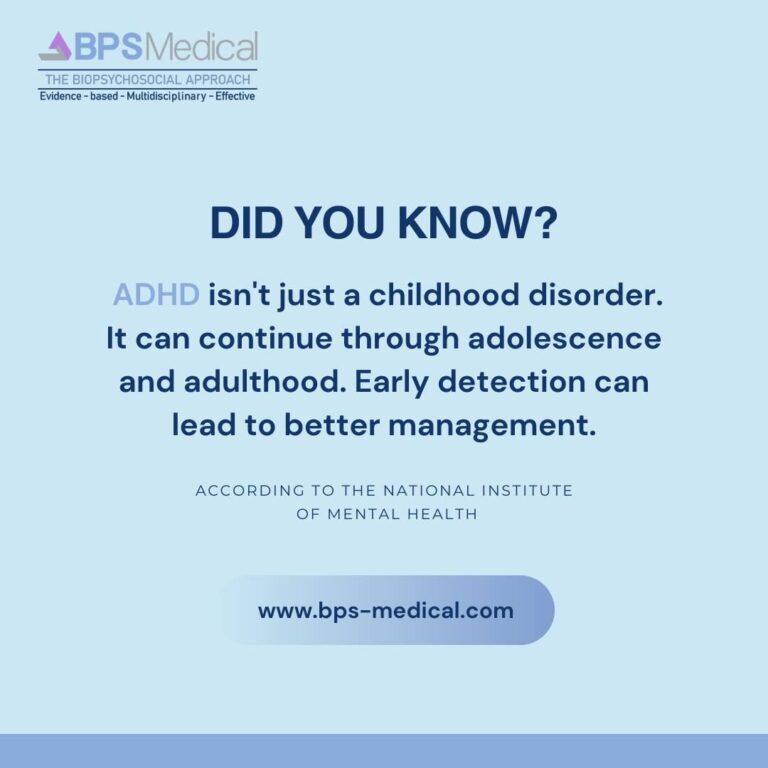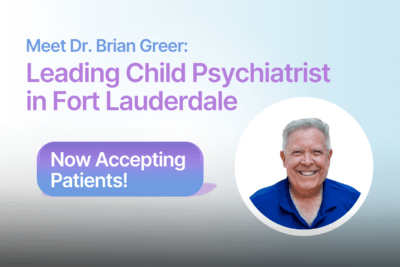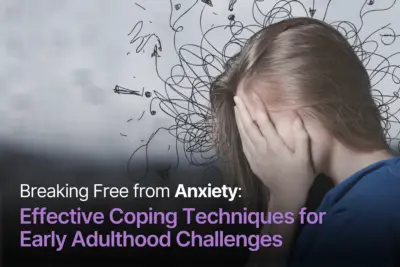Home » BPS Medical Providers » Child and Adolescent Psychiatrist | BRIAN F. GREER, MD
Dr. BRIAN F. GREER
Board-Certified adult/Child and Adolescent Psychiatrist
- Dr. Greer has contributed significantly to research and education, particularly in the areas of mental wellness, trauma, and the mind-gut connection. He has presented on topics such as dietary factors affecting mood disorders and the role of mitochondrial dysfunction in bipolar disorder. His work on the effects of Omega-3 fatty acids on ADHD and bipolar disorder in children and adolescents has been recognized in scholarly circles. Board-certified by the American Board of Psychiatry and Neurology in both Psychiatry and Child & Adolescent Psychiatry, Dr. Greer has also shared his expertise on the Oprah Winfrey Show and authored the book “Why Women Get the Blues.” Fluent in English, he continues to advance the field through his research, presentations, and clinical practice.
Meet Dr. Brian Greer, Expert in Child and Adolescent Psychiatrist, Now Accepting New Patients in Fort Lauderdale, Tampa, and Orlando, Florida.

BRIAN F. GREER, MD
Board-Certified Adult Psychiatrist/Child and Adolescent Psychiatrist in Ft Lauderdale, FL
EDUCATION
MD: Psychiatry, University of Miami, Miami, FL
BS: Bachelor of Science, University of Miami, Miami, FL
- Biology Minor in Religion & Chemistry Magna Cum Laude
Residency: Psychiatry, Jackson Memorial Hospital, Miami, FL
Fellowship: Child and Adolescent Psychiatry, Jackson Memorial Hospital, Miami, FL
ACADEMIC ACHIEVEMENT:
- Clinical Scholar Award from the University of Miami/Jackson Memorial Hospital Final Year of Child/Adolescent Psychiatry Training
- Research on traumatized children: Paper “Borderline Psychopathology on Male
Pre-Adolescent Sex Offenders” - Chief Fellow by the chairman for the final year of training
- Presentation to Living Well Connections: Dietary Factors in the Mind-Gut Connection/Microbiome and Contribution to Mood Disorders”
- LaPorte Center: Scholarly Presentation: Lithium Orotate: Effect on Enhanced
Cognitive Function through Increasing BDNF (Brain Derived Neurotropic Factor) - Scholarly Presentation: Nutrient Density, Antioxidants, and Anti-inflammatory Nutrients in Enhancing Mental Wellness
- National Alliance Mentally Ill, N.A.M.I.: Improving Memory and Cognitive
Function through Diet and Neuro-Nutrition - LaPorte Center: 2019-2020
- Series of lectures to staff: The role of Mitochondrial Dysfunction in Bipolar Disorder
- The role of DHA and EPA (Docosahexaenoic Acid and Eicosatetraenoic acid): Omega-3 Fatty Acids in the treatment of both Child/Adolescent A/D/H/D. And Bipolar Disorder.
BOARD CERTIFICATION:
- American Board of Psychiatry and Neurology
- Psychiatry (American Board of Psychiatry and Neurology)
- Child & Adolescent Psychiatry (American Board of Psychiatry and Neurology)
RECOGNITION:
- Guest on the Oprah Winfrey Show
- Author of the book: Why Women Get the Blues
Languages
English
What is a child and adolescent psychiatrist?
A child and adolescent psychiatrist is a medical doctor who specializes in diagnosing and treating mental health disorders in children, adolescents, and their families. This specialty combines elements of pediatrics, psychiatry, and neurology to address the complex emotional, cognitive, and behavioral issues faced by young people. Here are some key aspects of their role:
Areas of Expertise
- Developmental Disorders: They are trained to handle a range of developmental issues, such as autism spectrum disorders, ADHD, and learning disabilities.
- Mood and Anxiety Disorders: These psychiatrists treat depression, anxiety, bipolar disorder, and other mood-related conditions.
- Behavioral Issues: They address conduct disorders, oppositional defiant disorder, and other behavioral problems.
- Trauma and Stressor-Related Disorders: They provide treatment for children and adolescents who have experienced trauma, including PTSD.
Diagnostic and Treatment Approaches
- Comprehensive Assessments: Child and adolescent psychiatrists perform thorough evaluations, which include medical history, psychological assessments, and consultations with family members and other healthcare providers.
- Psychotherapy: They utilize various forms of therapy such as cognitive-behavioral therapy (CBT), family therapy, and play therapy.
- Medication Management: When necessary, they prescribe and manage psychiatric medications, considering the unique physiological and developmental aspects of younger patients.
- Integrated Care: They often work in collaboration with other healthcare professionals, educators, and social workers to provide holistic care.
“Experience comprehensive mental health care with Dr. Brian Greer, an Adult Psychiatrist/child psychiatrist in Ft lauderdale, FL, dedicated to treating a wide range of mental health issues.”
Understanding the Role of a Child and Adolescent Psychiatrist
In the complex landscape of mental health, child psychiatrists play a crucial role in addressing the unique psychological needs of younger populations. At BPS Medical, our approach integrates innovative treatments and personalized care, ensuring comprehensive support for children and adolescents facing mental health challenges.
The Biopsychosocial Approach
At the heart of BPS Medical’s philosophy is the biopsychosocial (BPS) approach. This model emphasizes the interconnection between biological, psychological, and social factors in understanding and treating mental health issues. By considering the full spectrum of influences on a young person’s mental health, BPS Medical ensures a holistic treatment plan tailored to each individual’s needs.
Neurofeedback Therapy
One of the key treatments offered at BPS Medical is neurofeedback therapy, a non-invasive technique that helps individuals self-regulate brain function. This therapy has shown significant benefits in managing conditions such as ADHD, anxiety, and mood disorders. Through real-time monitoring and feedback, patients can learn to modulate their brainwave patterns, leading to improved focus, reduced anxiety, and enhanced emotional regulation.
Comprehensive Evaluations and Personalized Treatment
Effective mental health treatment begins with a thorough evaluation. BPS Medical conducts comprehensive assessments that include clinical evaluations, psychological testing, and in-depth interviews. These evaluations help identify the underlying factors contributing to a child’s or adolescent’s mental health issues. Based on these insights, the team at BPS Medical collaborates to develop personalized treatment plans that incorporate neurofeedback, cognitive-behavioral therapy (CBT), and other evidence-based interventions.
Addressing Specific Disorders
BPS Medical Team including our child psychiatrist specializes in treating a wide range of mental health conditions common among children and adolescents. These include:
Attention-Deficit/Hyperactivity Disorder (ADHD): Neurofeedback therapy has proven effective in enhancing concentration and reducing impulsivity in individuals with ADHD. By training the brain to maintain focus, neurofeedback helps improve academic performance and daily functioning.
Anxiety Disorders: Anxiety can be debilitating, especially for young individuals. Neurofeedback therapy helps reduce anxiety symptoms by promoting balanced brainwave activity, leading to better emotional stability and overall mental wellness.
Mood Disorders: Conditions like depression can significantly impact a young person’s life. Neurofeedback, combined with other therapeutic interventions, can help stabilize mood and improve emotional regulation, providing long-term benefits.
Case Studies and Success Stories
BPS Medical’s approach has yielded numerous success stories. For example, many children and adolescents with ADHD have reported improved focus and academic performance after undergoing neurofeedback therapy. Similarly, individuals suffering from anxiety have experienced a marked decrease in symptoms, allowing them to lead more balanced and fulfilling lives.
The Importance of Qualified Care
Choosing the right mental health provider is crucial for achieving the best outcomes. BPS Medical ensures that all therapists are certified and experienced in neurofeedback therapy. Their personalized approach means that each treatment plan evolves based on the patient’s progress and feedback, ensuring that care remains effective and responsive to changing needs.
BPS Medical stands at the forefront of child psychiatry by integrating cutting-edge treatments like neurofeedback with a comprehensive, biopsychosocial approach. This holistic method addresses the multifaceted nature of mental health, offering children and adolescents the support they need to thrive.
What is one of the most common psychiatric disorders in childhood and adolescence?
One of the most common psychiatric disorders in childhood and adolescence is Attention-Deficit/Hyperactivity Disorder (ADHD). This disorder is characterized by a persistent pattern of inattention and/or hyperactivity-impulsivity that interferes with functioning or development.
Key Characteristics of ADHD
- Inattention: Difficulty sustaining attention, failure to follow through on tasks, and being easily distracted.
- Hyperactivity: Excessive fidgeting, difficulty remaining seated, and an inability to play or engage in activities quietly.
- Impulsivity: Interrupting others, difficulty waiting for a turn, and making hasty decisions without considering the consequences.
Prevalence
- ADHD is estimated to affect about 5-7% of children worldwide, making it one of the most prevalent psychiatric disorders in this age group.
Diagnosis and Assessment
- Diagnosis typically involves a comprehensive evaluation including medical history, behavioral assessments, and input from parents and teachers.
- Standardized rating scales and checklists are often used to gather information about the child’s behavior across different settings.
Treatment Approaches
- Behavioral Therapy: This includes behavior modification techniques, parent training, and classroom interventions.
- Medication: Stimulant medications are commonly prescribed. Non-stimulant medications may also be used.
- Educational Support: Individualized education plans (IEPs) and 504 plans can provide accommodations to help children succeed in school.
Impact on Daily Life
- ADHD can significantly affect academic performance, social interactions, and family relationships.
- Early diagnosis and intervention are crucial to help manage symptoms and improve long-term outcomes.
Sources
- Centers for Disease Control and Prevention (CDC): ADHD
- American Psychiatric Association (APA): What is ADHD?
- National Institute of Mental Health (NIMH): Attention-Deficit/Hyperactivity Disorder









